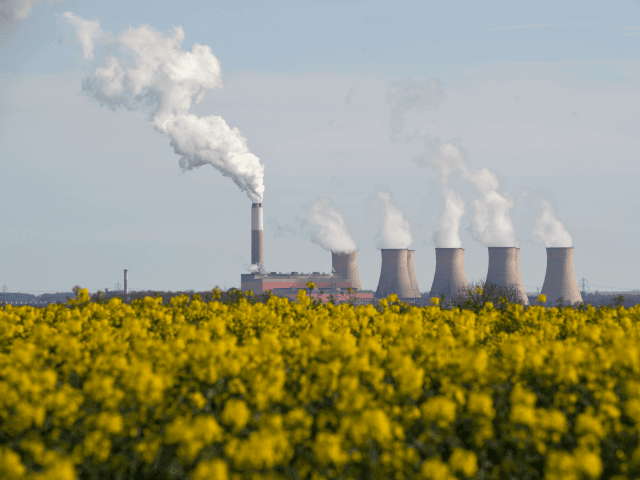Britain is heading for a major energy crisis within ten years, says a report published today by the Institution of Mechanical Engineers.
The loss of coal by 2025, along with growth in demand and the closure of the majority of our nuclear power stations will therefore be significant, leaving a potential supply gap of 40%–55%, depending on wind levels.
What the report doesn’t explain properly is that this is a direct result of the decision by Prime Minister David Cameron and his Energy Secretary Amber Rudd to engage in green gesture politics by announcing the premature phasing out of all Britain’s coal-fired power plants. These currently supply about one quarter of the country’s energy needs.
According to the report’s author, Jenifer Baxter:
“The UK is facing an electricity supply crisis.
“As the UK population rises and with the greater use of electricity use in transport and heating, it looks almost certain that electricity demand is going to rise.
“However, with little or no focus on reducing electricity demand, the retirement of the majority of the country’s ageing nuclear fleet, recent proposals to phase out coal-fired power by 2025 and the cut in renewable-energy subsidies, the UK is on course to produce even less electricity than it does at the moment.
“We cannot rely on CCGTs alone to plug this gap as we have neither the time, resources nor enough people with the right skills to build sufficient power plants.”
Combined Cycle Gas Turbines (CCGTs) are the state-of-the-art form of gas power generation which could, theoretically, fill that yawning energy gap. The problem is, says the report, that at least 30 of them would need to be built within ten years: something which certainly isn’t going to happen in the current climate when renewables are so heavily subsidised that it is quite impossible for fossil fuels to compete on a level playing field.
In other words technologies that work are being driven out of the market by technologies that don’t work, simply because of misplaced green squeamishness about “carbon” emissions.
The report is absolutely correct in its concerns. As with Islam, so it is with energy: Britain’s political class – in common with Europe’s political class – has neither the understanding nor the appetite, let alone the courage, to take the actions necessary to avert the inevitable crisis.
Even so, the organisation that produced the report – the Institution of Mechanical Engineers – is as much a part of the problem as it is the solution. Like so many institutions it has been swallowed up by the Green Blob.
Here, for example, is the CV of the report’s author Jenifer Baxter: (H/T Climanrecon at Paul Homewood’s place)
“Jenifer entered engineering in 1995 undertaking a BTEC in general engineering at North Hertfordshire College with an aim to change the world and create a cleaner environment through engineering. Following this Jenifer gained a BEng in Environmental Engineering in 2001 and an MSc in Sustainability, Planning and Environmental Policy in 2003, both from Cardiff University. Following an early spell in research, Jenifer went to work for the waste strategy team at the Welsh Government for six years until she left to study a PhD in technological innovation for hydrogen production from waste also from Cardiff University.”
So, instead of analysing the issue from a strictly engineering perspective – as perhaps, you might hope from something which calls itself the Institution of Mechanical Engineers and not, say, the Institution of Big Fluffy Pie In The Sky Green Fantasies – Baxter does insist in imposing her environmentalist slant. Just have a read of this bit:
The Secretary of State for Energy and Climate Change has said that the Government’s focus is “to create policy to ensure energy is affordable and secure and that in the past the balance had swung too far in favour of climate change policies”.
However it is far from clear that this market-led, consumer-based approach would lead to carbon reduction. With historically low oil prices and significant reserves of coal globally, there is potential for the cheapest fuel for power generation to be the one that is most polluting.
Green finger-wagging editorialising, or what? Woman, get this: it is not your job as an engineer to be telling us what Britain’s energy policies will or won’t do for “carbon reduction”. Your job is to tell us whether or not the lights are going to go out. And then to make recommendations as to how we might stop them going out.
Preferably recommendations that don’t include drivel like “investment in research and development activities for renewables”. What do you think it is that created this problem in the first place?

COMMENTS
Please let us know if you're having issues with commenting.